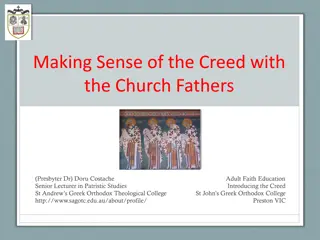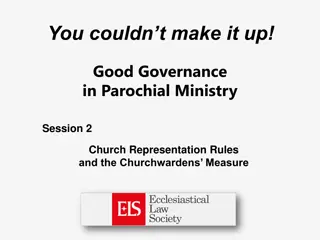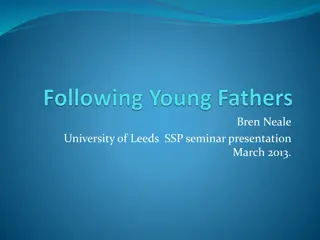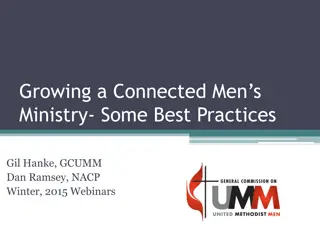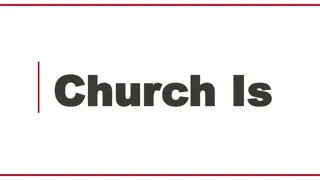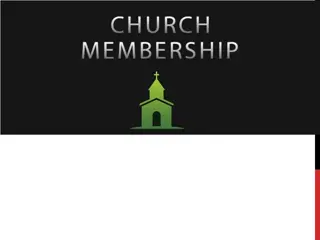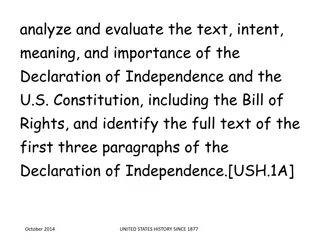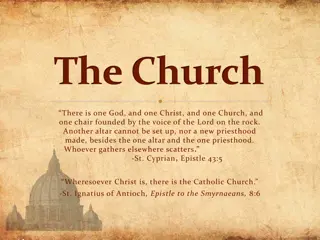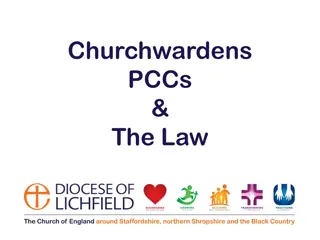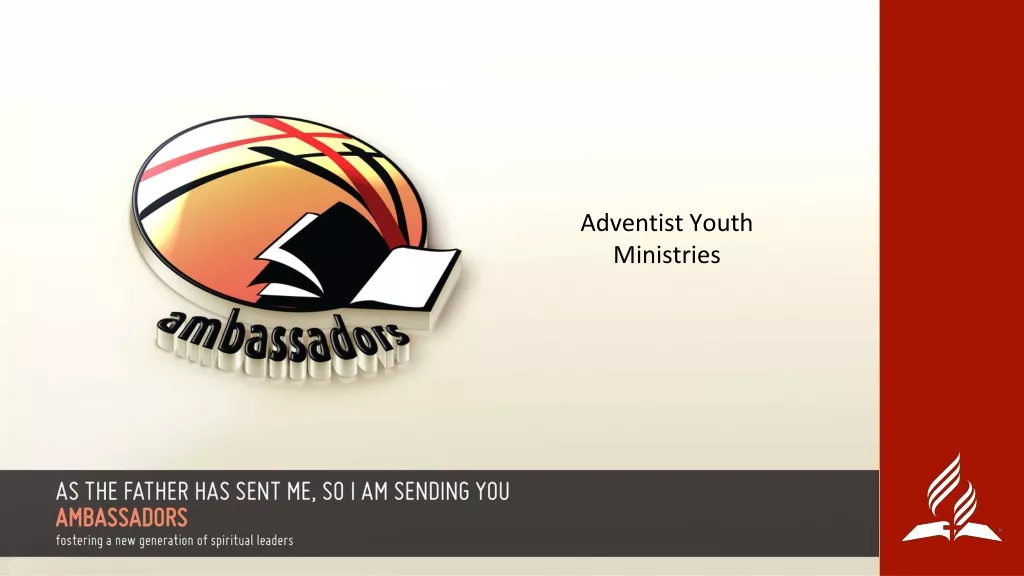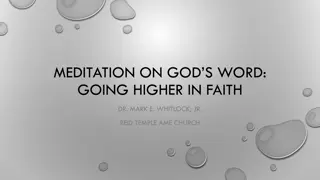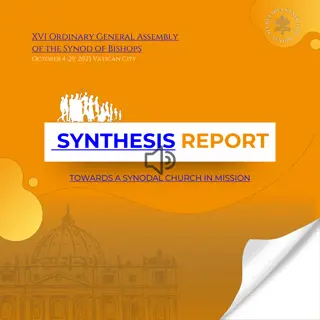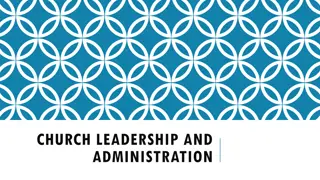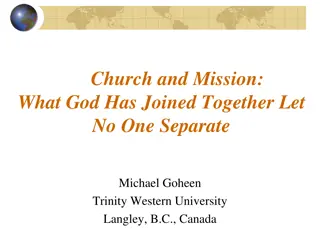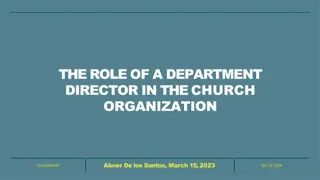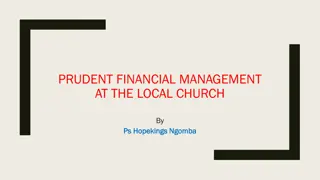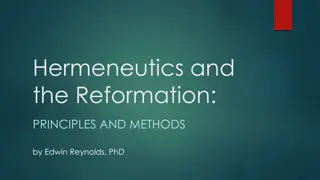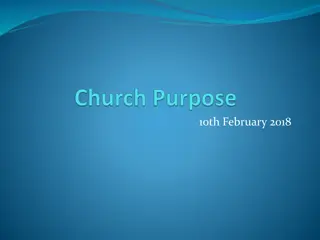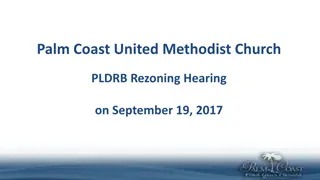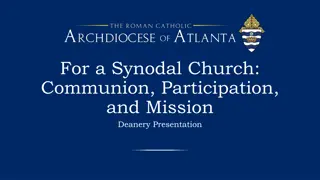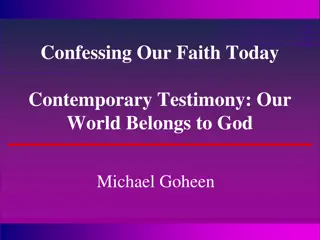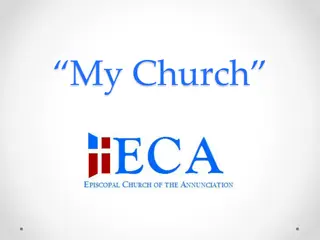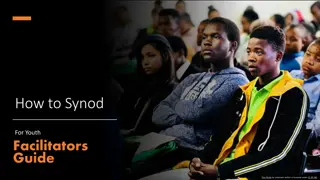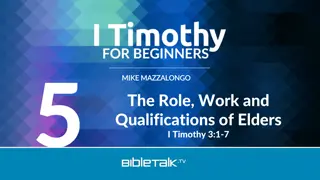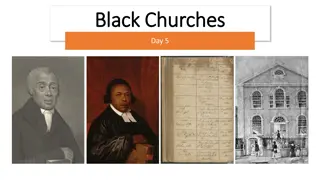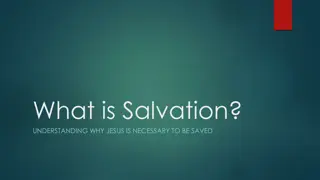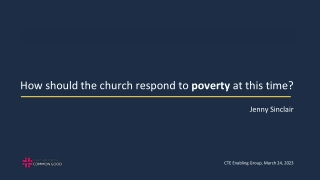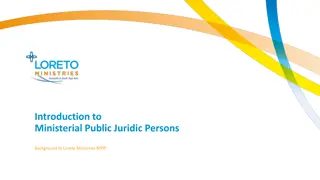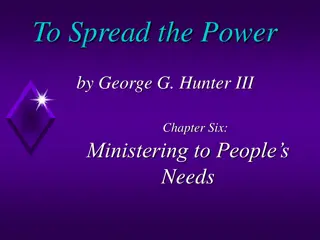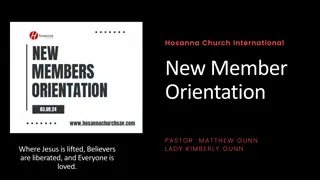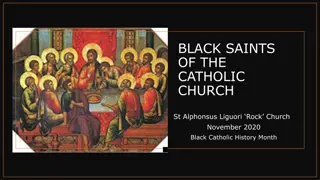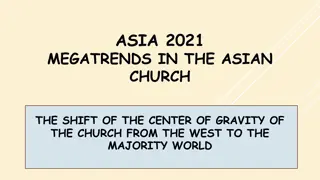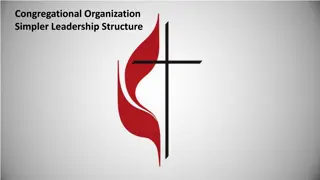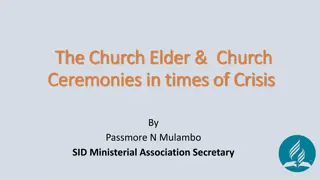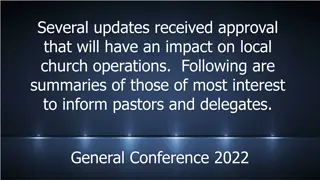Exploring the Significance of Church Fathers
Unveil the challenges faced by the Church, the importance of studying Church Fathers, and their distinguishing characteristics. Delve into the teachings of St. Augustine and St. John Paul II, providing insights for spiritual growth and understanding. Discover the relevance of their works in today's context and embrace the journey of faith with valuable lessons for evangelization.
Download Presentation

Please find below an Image/Link to download the presentation.
The content on the website is provided AS IS for your information and personal use only. It may not be sold, licensed, or shared on other websites without obtaining consent from the author. Download presentation by click this link. If you encounter any issues during the download, it is possible that the publisher has removed the file from their server.
E N D
Presentation Transcript
Introduction to the Introduction to the Church Fathers Church Fathers
Challenges The Church of Christ is facing tremendous challenges in her mission to bring Good News of Salvation to the whole world. Could you name some of the challenges? Example: Growth is sluggish in many parts of the world.
Why study the Church Fathers? St. Augustine: They have been the planters, irrigators, builders, and pastors, feeders of the Church which has been able to grow due to their vigilant and tireless service. In order to grow the Church in our time, it is necessary to know their works and doctrines thoroughly.
St. John Paul II taught... The Church still lives today by the life received from her fathers and on the foundation erected by her first constructors and she is being built today in the joy and sorrow of her journeying and daily toil. ~Apostolic exhortation Oct 16, 1979 No.2
Distinguishing Characteristics Pastoral Theological Catechetical Cultural Spiritual and social
Where do we go from here? Tonight! Our Lord s command seems hard and heavy, that anyone who wants to follow him must renounce himself. But no command is hard and heavy when it comes from one who helps to carry it out. That other saying of his is true: My yoke is easy and my burden light. Whatever is hard in his commands is made easy by love. ~St. Augustine s commentary on this Sunday Gospel
What will we What will we cover? cover?
What we will learn: High level overview Provide context to reading Scripture Increase understanding of history and development of doctrine Prepare us for evangelization Jumping off point to individual study
What we won't cover: All of the readings Everyone All of the heresies and debates
What is a Father? "Now the company of those who believed were of one heart and soul" -Acts 4:32 Heirs to the Apostles Protectors of the early family Some are saints some are not
The Four 'Marks' St. Vincent of Lerins (5th cent.) 1. Antiquity Mid 1st cent mid 8th cent w/ the death of St. John of Damascus Some learned from Apostles Formed and shaped the Church and her doctrine
The Four 'Marks' 2. Orthodox Doctrine Carried on the Apostolic teaching Scripture and oral Tradition The understanding of orthodox changed over time
The Four 'Marks' 3. Holiness of life Perception and legacy of the time 4. Church Approval Church Father vs. Ecclesiastical Writers Not everything a father wrote is official teaching
Who were They? Converted Jews and pagans, multi-generational Christians ~ 100 or so Greek (Eastern) and Latin (Western) Famous: Not Quite Famous: ~Augustine of Hippo ~St. Fulgence of Ruspe, ~Ignatius of Antioch ~St. Melito of Sardis, ~Ambrose of Milan ~Minucius Felix
What did they write about? Canon of the Bible Unity and Church Structure Apologetics Apocryphal/Literature Martyrdoms Heresies Order of the Mass Creeds and Councils Some writings are lost and only referenced in extant writings from other authors...
What did they write about? st rd 1 4 5 - 3 th Century -Mystery of the Trinity th Century+ Who is Jesus? - Defense against pagan and Jewish rumors and accusations Apostolic era (Patristic Era) Ante-Nicene Nicene Post-Nicene
Next Week. Life in the Early Church Patristic Fathers


